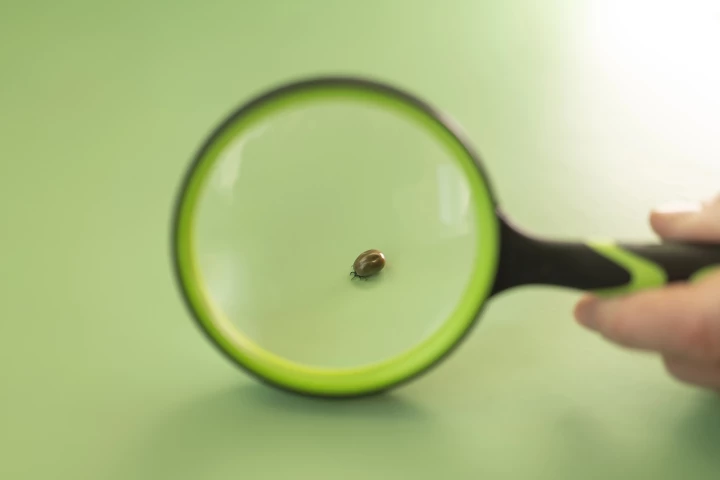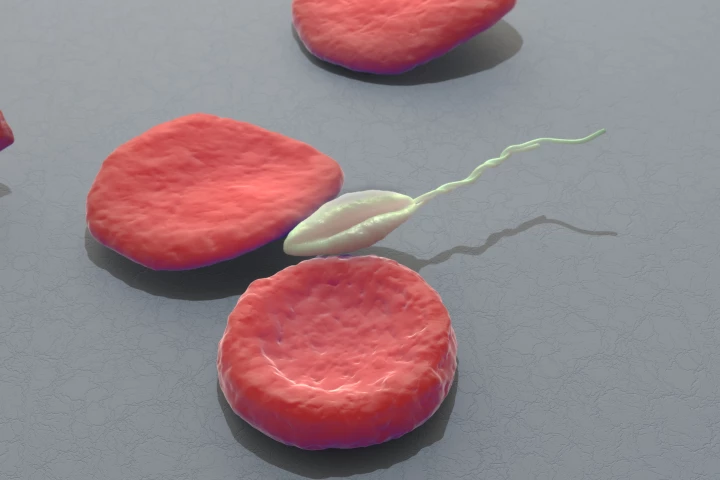Parasites
-
A novel way to prevent the spread of malaria by directly targeting the proteins that enable the infectious parasite to reproduce could soon be realized, thanks to scientists at WEHI in Australia.
-
It turns out that donkeys are exceptionally good at repelling deer ticks. Now, researchers at the University of Massachusetts Amherst have harnessed that ability to create a natural bug repellent that proved as effective as DEET at fighting the pests.
-
From fleas to mosquitoes, there's no shortage of organisms we consider pests. But thanks to new genetic detective work, scientists have named and shamed the resilient, highly adaptive – and frustratingly hard to kill – bug that got to us first.
-
One type of parasite, Entamoeba histolytica, has developed a very intriguing way to evade the defences of our immune system. It rips pieces off human cells and steals the proteins to wear them as a disguise.
-
Zombies are real – not in the walking dead sense, but parasites that can force creatures to do things against their will. The launch of The Last of Us season 2 feels like a great time to explore some of the real-world zombie stories that inspired it.
-
If you ever travel back in time to the reign of dinosaurs, don’t touch any flowers – it might just be a parasitic wasp in disguise. Analysis of wasps preserved in amber show how the insect ensnared hosts for its larvae with a Venus flytrap-like butt.
-
Brain parasites are something that most people would naturally want to avoid, but maybe they can be used for good. A new study has found that a common brain parasite could be engineered to deliver drugs past the blood-brain barrier.
-
Spread by sandfly bites, the leishmania parasite causes ulcers that for many people are unexpectedly pain-free. For decades scientists have been puzzled by these painless lesions but new research is now homing in on the unusual analgesic mechanisms.
-
More than 40 million Americans carry this feline-host bug. Now, a new study has linked our immune response to the infection with accelerated physical and cognitive decline. Fortunately, you don't have to throw the cat out with the cat litter just yet.
-
Play is a vital part of animal behavior, helping to form social structures and bonds, develop cognitive function and enhance physical abilities. Now, it's believed whale play with seaweed to scrub off dead skin cells and parasites as they migrate.
-
Hijacking the body of another animal is nothing new in the opportunistic world of parasitism. But for the first time, scientists have observed how one crafty flatworm can switch ‘zombie mode’ on and off, leaving its host ant stuck between life and death.
-
The animal kingdom is home to all kinds of stories – even horror stories. Scientists at Brown University have now uncovered a creepy new zombie story involving worms that propagate by hack their shrimp host's genome to take control of their minds.
Load More











